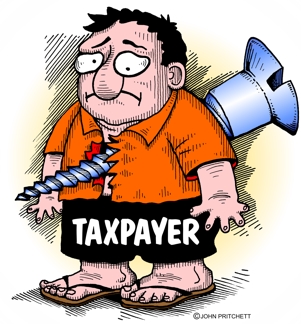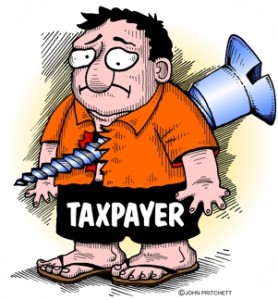
This is an EnergyWire E&E article so it requires a subscription.
INFRASTRUCTURE: Texas struggles to fund fixes for energy-related road damage (Monday, July 16, 2012)
The wave of oil and gas production that has swept over Texas has brought thousands of jobs and millions of dollars to the state, but it has also wreaked havoc on its roads.
The Texas Department of Transportation estimates that repairing road damage from drilling activity could cost it “conservatively” $1 billion for farm-to-market avenues and $1 billion for local roads. The estimate does not include the costs of maintaining interstate and state highways.
“Right now there’s not a dedicated revenue source,” said John Barton, the department’s deputy executive director. “We need $2 billion, and the shortfall is $2 billion.”
Is that Texas Math? Is it really a good idea to let Texas control the nation’s text book market?
In the don’t worry about it category: There is a new task force to address this problem and suggest legislation. Guess who is on the task force to help decide the rules by which they operate…wait for it…the Big Oil & Gas Mafia, that’s who. Surprised?
In the I told you so category: The article also says industry might be reluctant to repair roads because gas prices are low and Texas production has slowed. History has shown us over and over that oil and gas booms are followed by tax payers cleaning up the messes.
“‘Who should pay for it?’ That’s the kind of questions we in the industry are asking ourselves,” said Deb Hastings, executive vice president of the Texas Oil & Gas Association. “We do pay billions in taxes already. How that’s funneled to local governments, that’s the question.”
But wait! How much do big oil companies pay in taxes? The reality is they have a “Misbegotten Tax Gusher” that includes billions in subsidies from…wait for it…the American taxpayers. Surprised?
While Oklahoma City-based Chesapeake is the biggest U.S. oil and gas producer with such low tax payments, it’s far from alone, according to the data that calculated several companies’ so-called long-run cash effective tax rates. Range Resources Corp. (RRC) paid income taxes of about 0.4 percent of pretax income over the past decade, the data show. Southwestern Energy Co. (SWN) paid 2.1 percent and EQT Corp. (EQT) paid 5.3 percent, the data show. …
Amy Mall also blogged about the road issue and she included a link to the driver safety loophole–just another loophole for polluters.
In the glad you finally caught up category: The media has just now figured out that the Eagle Ford Shale oil field roads are enabling drug smugglers to cross the border. Mrs. Burns could have told them that years ago.
About Sharon Wilson
Sharon Wilson is considered a leading citizen expert on the impacts of shale oil and gas extraction. She is the go-to person whether it’s top EPA officials from D.C., national and international news networks, or residents facing the shock of eminent domain and the devastating environmental effects of natural gas development in their backyards.
- Web |
- More Posts(5121)
How about a hefty REPAIR & ENVIRONMENT production TAX on the O&G operators in Texas!!!! Tax ’em till they squeel like a pig passing a peach seed—and then just back off one click!
In Texas? Ha! You and I both know that will never happen.